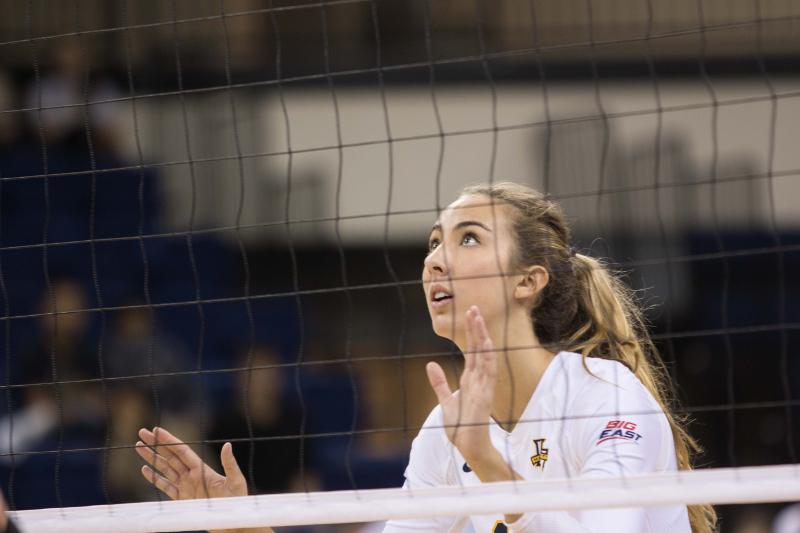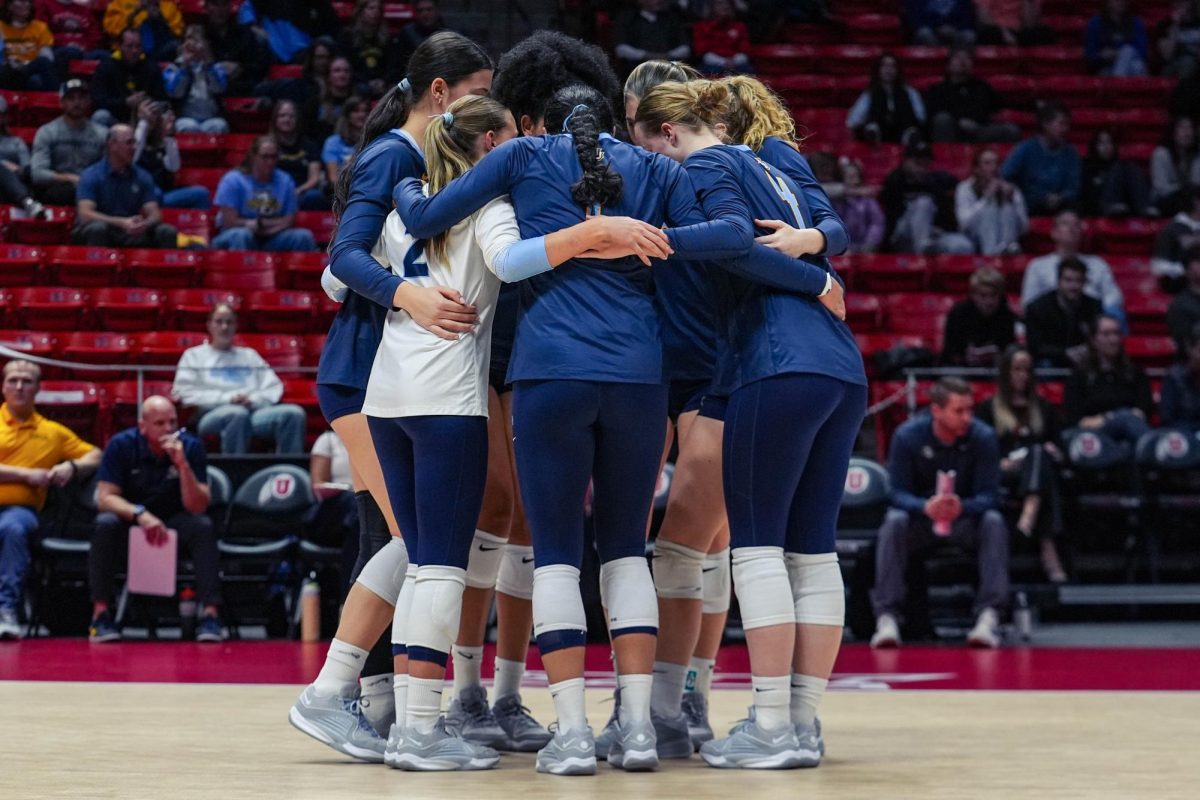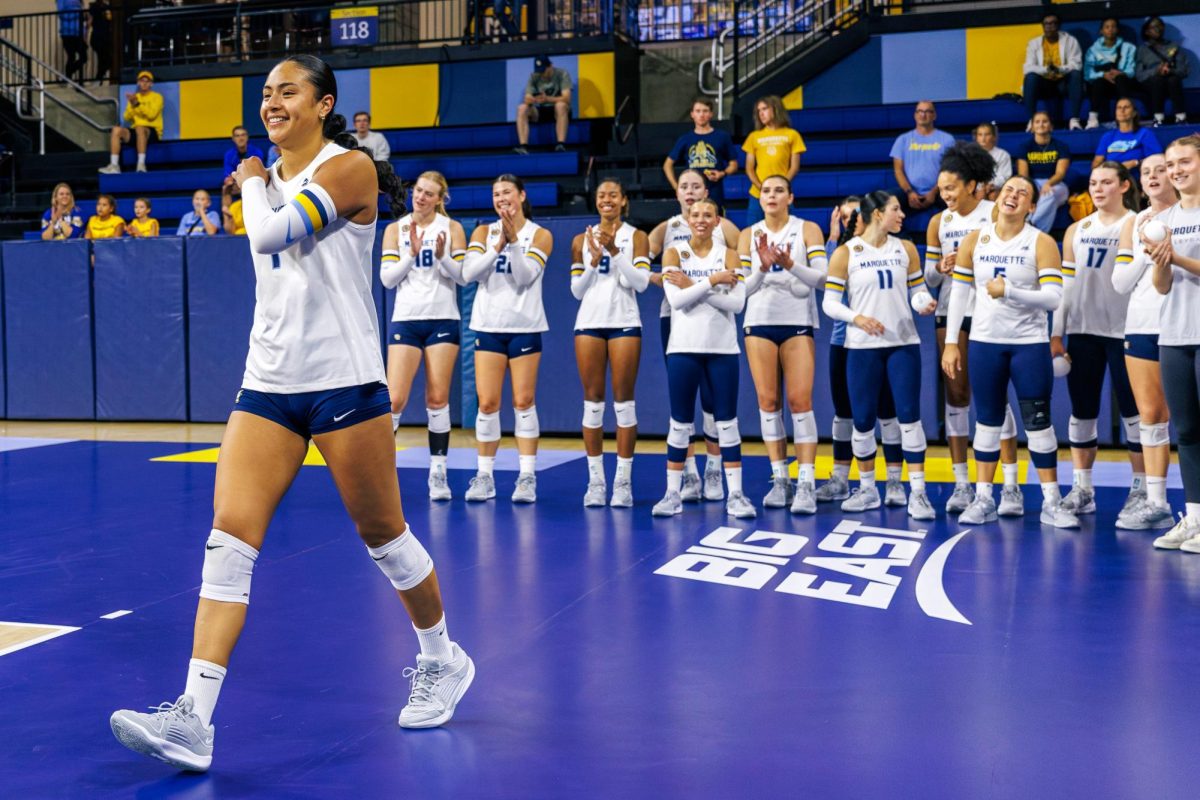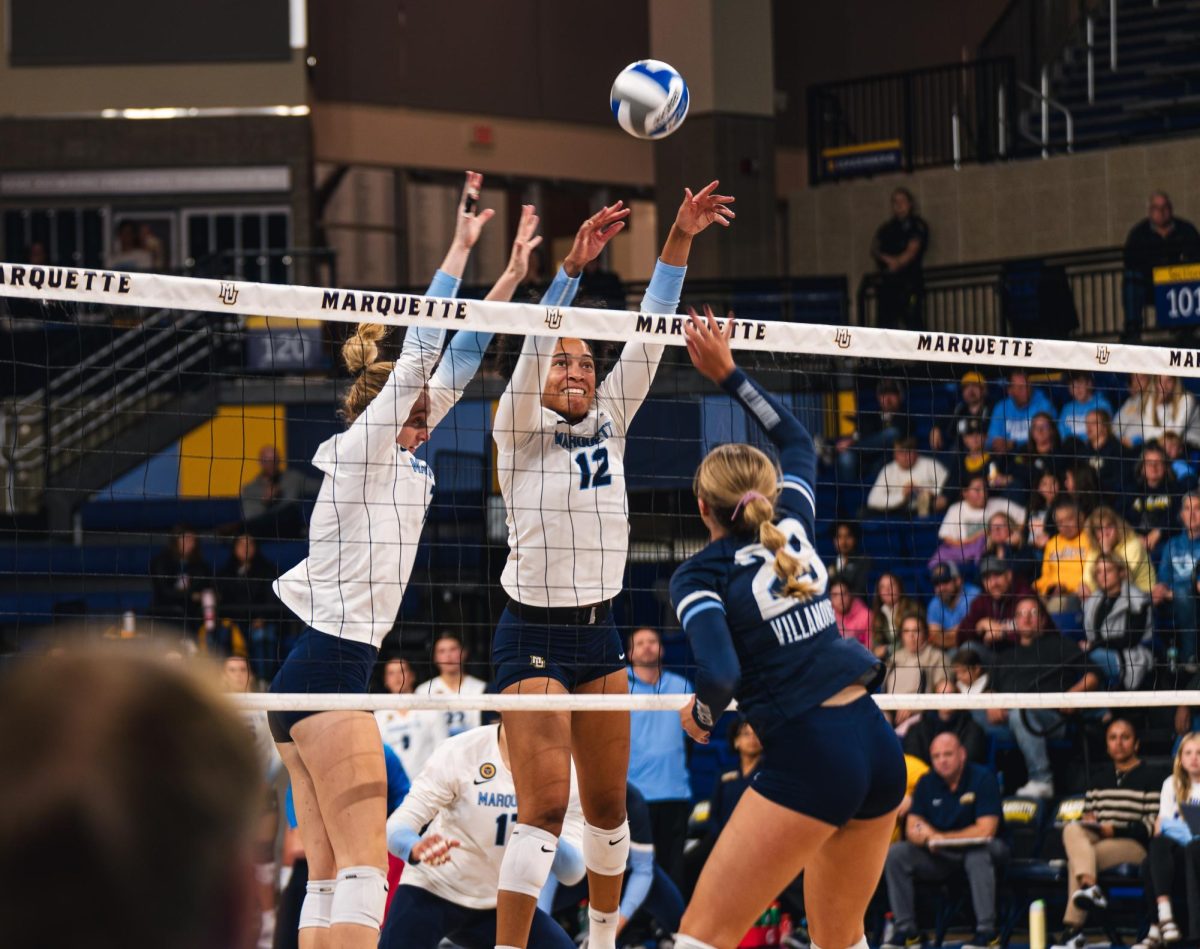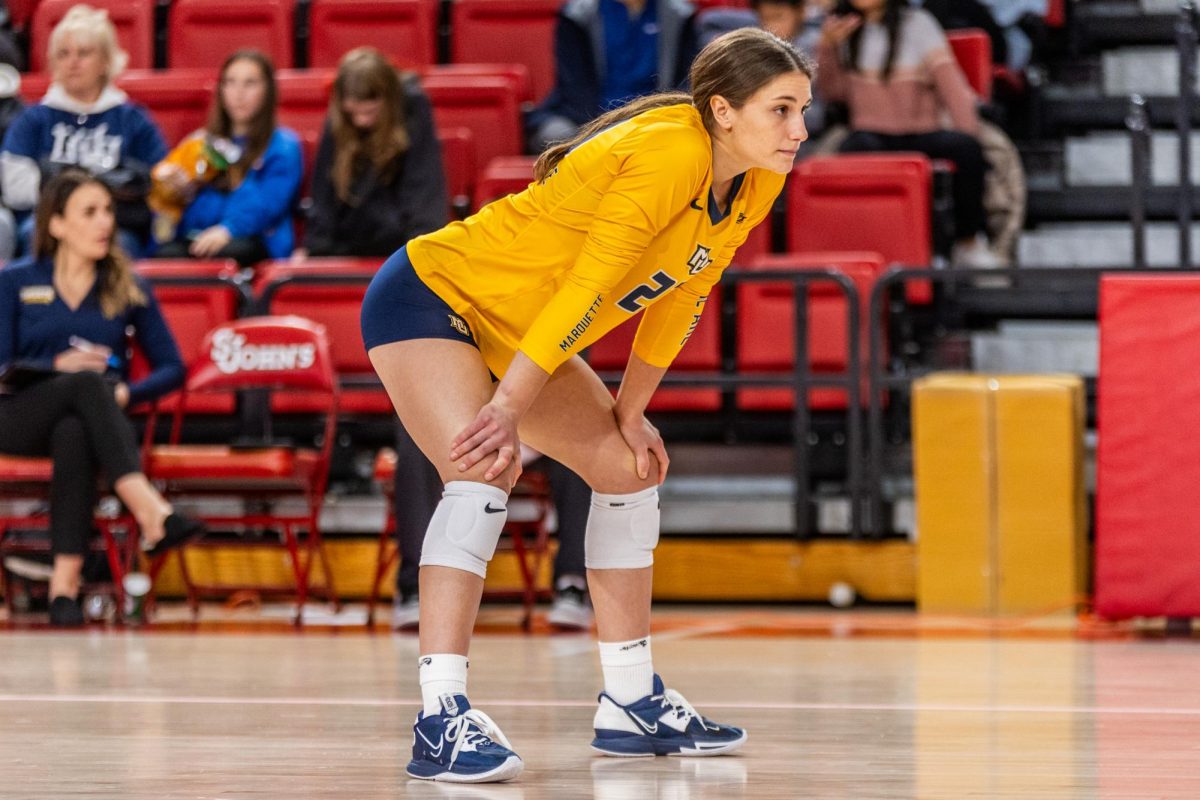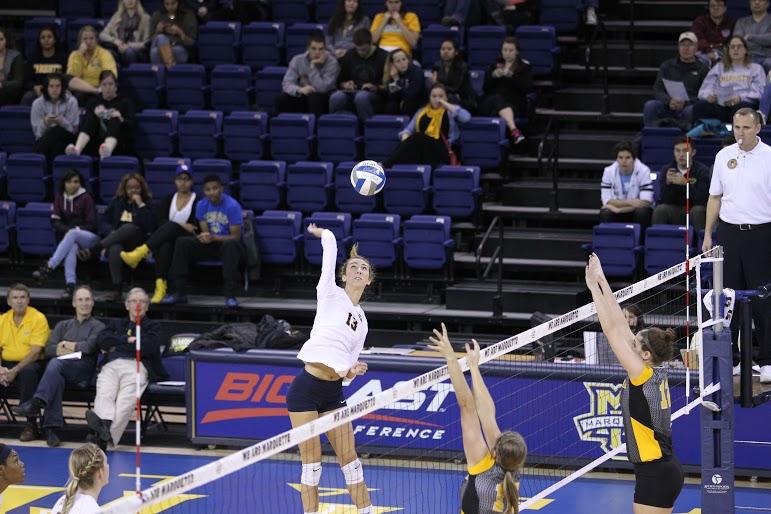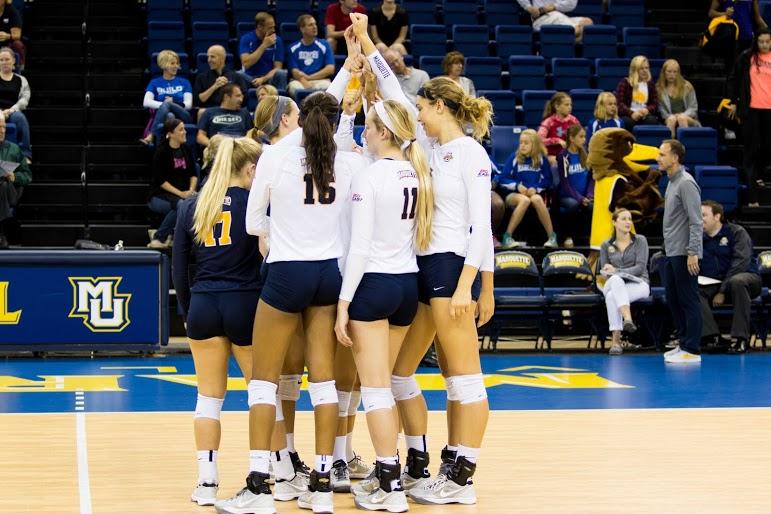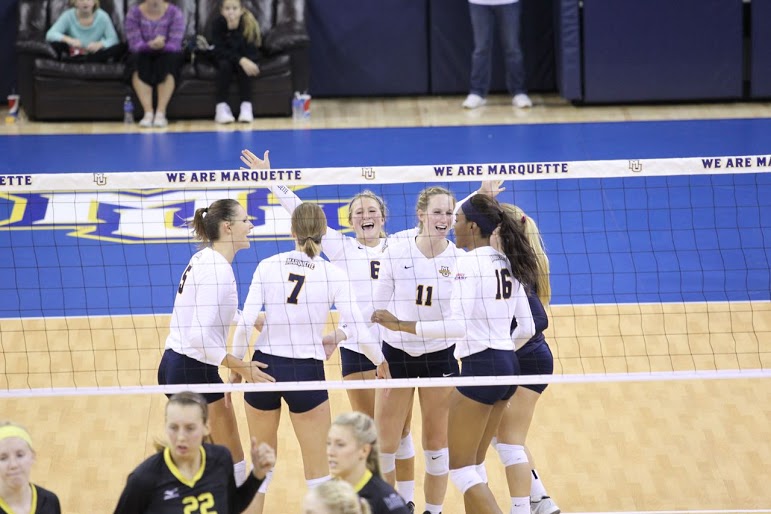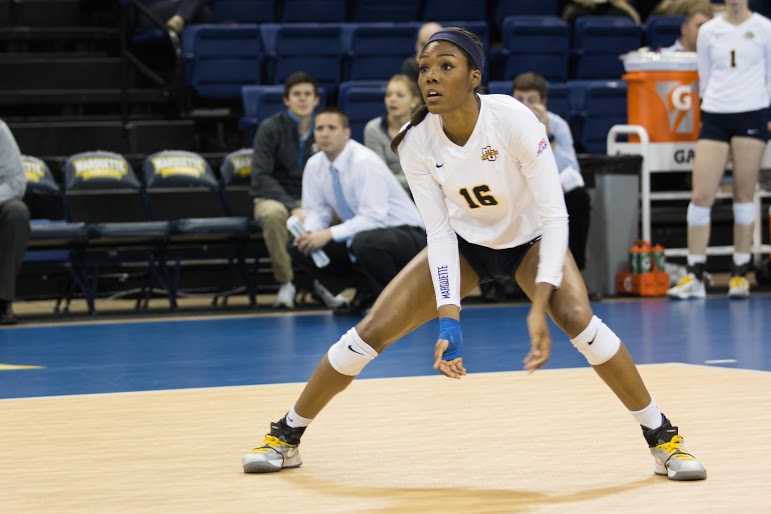Game days have been different for Teal Schnurr this season. They begin as any normal game day would. She arrives at the Al McGuire Center, stretches out, gets in uniform and warms up, but when it’s game time she puts on a sweatshirt and finds a spot on the bench to cheer on her teammates for the rest of the match.
Schnurr decided to redshirt her senior year following shoulder surgery last winter. Being unable to play has been difficult, but Schnurr is using the time to become even better.
Schnurr found herself playing in agony most of last year and as the season wore on the pain in her shoulder only increased.
“The whole season I was like ‘I really think something is wrong with me, something is not right,’ but I was starting, so obviously I just wanted to not lose that, just play through that. You got to do what you got to do,” Schnurr said.
By Christmas time the pain had grown to the point where an easy task, such as putting dishes on a shelf was a nearly impossible, excruciating experience. Before heading home for Christmas break Schnurr got an MRI, and while home in Colorado she received the dreaded phone call that revealed two tears in her labrum.
“I was really sad, but at the same time I was happy that there was something wrong that could be fixed,” Schnurr said. “To think that you had unreasonable pain and no cause was really stressful, so in a way I was relieved.”
A week before school started up again, Schnurr flew back to Milwaukee for surgery. For the next month she was in an immobile sling and after the sling was removed, her arm was just limp at her side. That made life difficult.
“It really ruined my outfits to be honest,” Schnurr said with a laugh.
Approximately four months after being out of the sling, Schnurr finally began to move her arm again, but even then just walking her arm up her a wall was difficult.
“The process wasn’t going fast enough,” Schnurr said. “I was always like, ‘I want more. I want to be back to where I was.’ It was always like you were happy, but not happy enough.”
In the spring she started volleyball activities, but Schnurr was limited to just passing. By the summer she was able to start hitting overhead, but even then the process wasn’t complete.
“Probably a month ago is when I have truly felt like I am back to myself,” Schnurr said. “I was swinging, but it wasn’t the same, but now I feel like it is a lot more loosened up and back to how I was, but that just happened. It has been a weird time, not being who you used to be.”
“It was definitely interesting because it was teaching yourself something all over again, like learning how to walk again… to be watching everyone be getting better during spring and summer and me being able to sit on the sidelines and just watch it was hard,” Schnurr added. “I mainly just tried to stay positive because there were some days I would just freak out where you are just like ‘I can’t even put my hair in a pony tail. This is so frustrating.’ I was a lot more reliant on my roommate. It’s really hard to not be able to do the things you are used to being able to do.”
During the summer, Schnurr worked to try and be healthy to start the season and at least be able to play half of the year, but ultimately the decision was made to have her redshirt.
“She wasn’t going to be 100 percent by the beginning of season, so in many cases you make the decision,” head coach Ryan Theis said. “Do we want her the whole season, do we want to give her an additional season eligibility wise? It just made sense with our roster makeup and her skill set that we redshirt her for this year.”
Redshirting has given Schnurr the ability to get in extra work on weekends because she is not playing. That’s given her the opportunity to keep developing her game and build strength.
“Teal is always trying to get stronger. The ability to hit harder leads to the ability to score more points,” Theis said.
While redshirting does provide a chance to improve, there is also the challenge of having to sit on the sidelines and being unable to contribute in a game.
“Game days at the beginning of the season were really hard for me,” Schnurr said. “I would say that I cried everyday. The beginning of the season was rough, but I have teammates who aren’t necessarily starters and they have a different role on the team who I sit with and they kinda have figured out how to cope with that, so I have kind of jumped on that bandwagon of this is how you need to act on game day and not be selfish and wishing you were out there.”
“I think it was exhausting me being sad about it, it was just like so not me to be sad all the time and that was wearing me down,” Schnurr added. “So I just kind of was like there are bigger problems for me to worry about then pouting about the fact that I’m not playing, so I just kind of make the best out of game days.”

